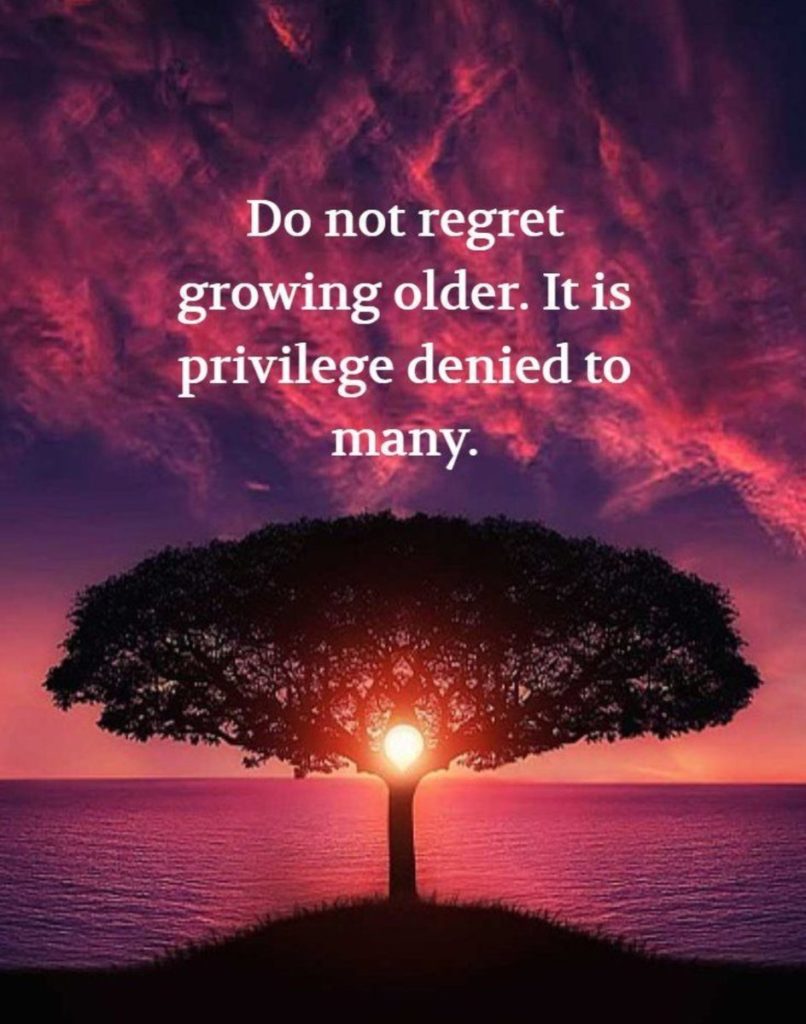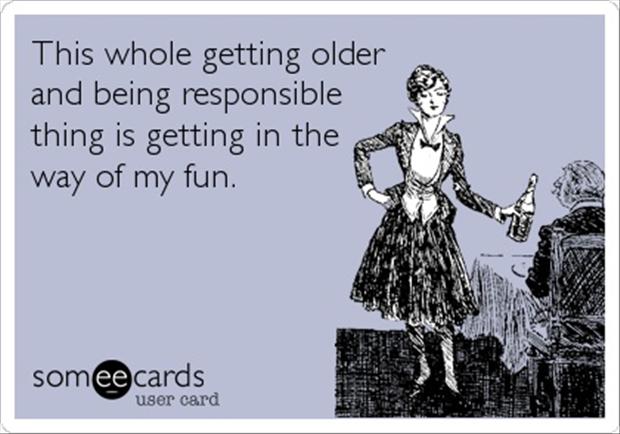
Our society celebrates youth. For this reason older people go to great lengths to look as young as possible to get that validation. But when you change your outlook on the aging process you’ll find it easier to accept it and age gracefully. The four different aspects of aging provide a different perspective on aging that prove that age is determined based on your mindset and not your looks alone. (Estimated reading time: 5-6 minutes)
“We don’t stop playing because we grow old. We grow old because we stop playing.”
— George Bernard Shaw
“Age is just a number,” is a catchphrase that’s so popular, it’s become almost a cliché. Our culture is youth obsessed, and hundreds of books with similar titles flood the self-help bookshelves.
Our society celebrates youth because it’s the young, for the most part, who are pleasing to the eye. This sets a benchmark for older folks to aspire to look as young as possible to get that validation. Both men and women invest in expensive skincare routines, plastic surgeries, botox injections, spa treatments, and other pills and potions that pose as anti-aging miracle cures.
The beauty industry has a vested interest in pushing the “age is just a number” rhetoric. In 2018, the global anti-aging market was valued at $50.2 billion, and U.S. sales alone made up almost half of that. The industry thrives on waving the anti-aging flag and then attending to the insecurities we all have about getting older.
While I admit that looking older is something that has concerned me, it’s the idea of feeling older that bothered me more, especially after I turned 30. The calendar told me it’s been 30 years since the day I was born. Traditional doctrine said I should have been married with a kid or two by then.
Physiology experts said my metabolism would begin to slow, my joints would get stiffer, my skin would start to lose its elasticity, and I might get wrinkles. Needless to say, turning 30 was an emotional minefield. It forced me to confront my relationship with age and find a way to strike a healthy balance between staying youthful and aging gracefully.

The deeper I dug, the more I found that there’s a lot more to the complex process of aging than just the societal phenomena of ageism. The quest for youth includes more than just a longing for aesthetic beauty.
It has considerable aspirational elements as well. Liberating ourselves from the expectations of certain life stages, especially as we grow older, allows us to do things that keep us young at heart.
Think of the 60-year-old who decides to do a hike up Machu Picchu. Or the 40-year-old who enrolls in college to get another degree. Or the 80-year-old widower who falls in love and decides to get married again.
People like these are considered anomalies because they’re doing something that’s not typical for their age. But it’s precisely these outdated expectations of “age-appropriateness” that age us more than our cells and tissue.
Our culture permits us a small window of time in our teenage and young adulthood years to find ourselves after which we’re urged to lock down our choices and settle down. But what if we haven’t figured it all out by then? What if we’re late-bloomers who didn’t get it right the first time around?
Author and New Age expert Deepak Chopra said, “People don’t grow old; (it’s) when they stop growing, they become old.” He goes on to say that changing our perceptions and thoughts around aging can change and even reverse the aging process. He says:
“There is more and more data that the biological molecules of aging are more under the influence of psychological factors than the chronological age that we usually associate with. Of course there are other things that influence our aging process, including how we perceive time. The quality of our self-esteem determines how we age. Our perception of our bodies as fields of energy or fields of matter influence how our body ages.”

There’s also research that backs up the theory that feeling young and changing our perception around aging can actually lead to physical changes in our bodies. In a study done by Harvard psychology scientist Ellen Langer, she had old men live in a retreat that looked like it was 20 years earlier and asked them to pretend they were living in that year.
Langer found that after the experiment, the men’s vision and strength improved tremendously because their minds were in the past, a time when they were much younger.
Even though the chronological age of these men stayed the same, they experienced changes in other aspects of aging: biological, psychological, and social. If you’re someone who complains about not feeling or looking your age, or you have other people accusing you of not acting your age, it’s because one of these aspects differs from your chronological age.
We can experience age differently when we factor in these four aspects of aging:
1. Chronological age: Chronological age is the amount of time since we were born (your birthday), in terms of years, months, and days. When someone asks you how old you are, you’re giving them your chronological age. Traditionally, people use this age as a social benchmark to determine maturity, life stages, and rites of passage for an individual: school enrollment, graduation, marriage, employment, childbearing, middle-age crisis, retirement, etc.
2. Biological age: As we age, our bodies gradually accumulate damage in cells and tissue. This results in physical changes like slower mobility, loss of skin elasticity, and lower immunity. Unlike our chronological age, our biological age isn’t solely determined by time but by other factors like genetics and lifestyle habits, including exercise, diet, stress, sleep patterns, and smoking. This age is under our control because it’s based on our choices.
A 25-year-old woman who only eats junk food, doesn’t work out, and smokes three packs of cigarettes a day is likely to have a biological age much higher than 25.
3. Psychological age: Your psychological age is determined by how you feel, act, and behave. It doesn’t necessarily have to align with your chronological age. If you’ve ever been told you act younger or older, it’s probably because your psychological age is different from the average person in your chronological age group. People in this category often feel like misfits. A difference in maturity is demonstrated through actions, behaviors, and emotional responses.
Environmental activist Greta Thunberg most likely has a psychological age above her peers because of her deep concern and insight on complex issues surrounding climate change and the environment.
4. Social aging: Social age is measured based on a person’s interpersonal skills and their ability to live within the norms and expectations of their social networks like family, friends, workplace, organizations, and communities. The standards used to determine how well we live up to our social roles are heavily influenced by our culture and religion.
For example, the social age of a 20-year-old who married young and had children would be considered higher than a 20-year-old who is a single college kid in certain conservative circles.
The search for the fountain of youth is a universal quest we all share. But this fountain of youth is already within you and is accessible at all times. Every time you tend to the needs of your soul by engaging in laughter, creativity, joy, love, and peace, you tap into this wellspring of youth and remain young at heart.
All my best on your journey,
Seline

Question for you: Do you feel young or old for your age? What do you think your ages are in each aspect of aging?
Did you like this post? Sign up below, and I’ll send you more awesome posts like this every week

Have Your Say